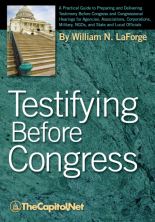From the Congressional Glossary – Including Legislative and Budget Terms
Treaties

Resolution of Ratification: Senate vehicle for consideration of a treaty.
Executive proposals – in the form of resolutions of ratification – that must be submitted to the Senate for approval by two-thirds of the senators present. Treaties today are normally sent to the Foreign Relations Committee for scrutiny before the Senate takes action. The Senate Committee on Foreign Relations has jurisdiction over all treaties, regardless of the subject matter. Treaties are read three times and debated on the floor in much the same manner as legislative proposals. After approval by the Senate, the president formally ratifies treaties. Treaties not approved by the Senate at the end of a congressional session do not die. Instead, they can be considered by a future Congress unless withdrawn by the president.
A treaty is an executive document sent by the president to the Senate for its consideration and approval.
Reservations are formal declarations that modify the effect of one or more of the provisions of the treaty. The Senate sometimes also includes other additions to the resolution of ratification called “understandings,” “interpretations,” or “declarations” that do not modify the force of the treaty but are intended to further clarify its meaning. Each of these matters requires only a simple majority for adoption.
– Reservations are “specific qualifications or stipulations which change U.S. obligations without necessarily changing treaty language.”
– Understandings are “interpretive statements that clarify or elaborate the provisions of the treaty but do not alter its language.”
– Declarations are “statements of the Senate’s position, opinion or intentions on
matters relating to issues raised by the treaty, but not to its specific provisions.”“Treaties and Other International Agreements: The Role of the United States Senate,” S. Prt. 106-71 (January 2001).
Chapter 8.D. Treaties in Congressional Procedure.
60 Years Of NATO In Eight Minutes
Also see
- Executive Session / Executive Business / Secret Session (CongressionalGlossary.com)
- Executive Calendar (CongressionalGlossary.com)
- § 8.30 Congress and the Executive: Ratification of Treaties and Foreign Policy, § 8.150 Congress and Foreign Policy: Treaties and International Agreements, in Congressional Deskbook
- Chapter 8.D. Treaties in Congressional Procedure
More
- Treaties in Force (TIF) – State Department
- Senate Committee on Foreign Relations
- List of United States treaties – Wikipedia
- “Senate Consideration of Treaties,” CRS Report 98-384 (6-page PDF
 )
) - “Bills, Resolutions, Nominations, and Treaties: Characteristics, Requirements, and Uses,” CRS Report 98-728 (3-page PDF
 )
) - “Bills, Resolutions, Nominations, and Treaties: Characteristics and Examples of Use,” CRS Report R46603 (14-page PDF
 )
) - “Why Certain Trade Agreements Are Approved as Congressional-Executive Agreements Rather Than as Treaties,” CRS Report 97-896 (13-page PDF
 )
) - “Arms Control and Nonproliferation: A Catalog of Treaties and Agreements,” CRS Report RL33865 (82-page PDF
 )
) - “Reservations, Understandings, Declarations, and Other Conditions to Treaties,” CRS In Focus IF12208 (11-page PDF
 )
) - “What Happens if H.R. 1 Conflicts with U.S. Tax Treaties?,” CRS Legal Sidebar LSB10047 (4-page PDF
 )
)
Courses
- Congressional Operations Briefing – Capitol Hill Workshop
- Drafting Federal Legislation and Amendments
- Writing for Government and Business: Critical Thinking and Writing
- Custom Training
- Preparing and Delivering Congressional Testimony and Oral Presentations, a Five-Course series on CD
- Congress, the Legislative Process, and the Fundamentals of Lawmaking Series, a Nine-Course series on CD
Publications

Testifying Before Congress |

Pocket Constitution |

Citizen’s Handbook to Influencing Elected Officials: A Guide for Citizen Lobbyists and Grassroots Advocates |

Congressional Procedure |
CongressionalGlossary.com, from TheCapitol.Net
For more than 40 years, TheCapitol.Net and its predecessor, Congressional Quarterly Executive Conferences, have been teaching professionals from government, military, business, and NGOs about the dynamics and operations of the legislative and executive branches and how to work with them.
Our custom on-site and online training, publications, and audio courses include congressional operations, legislative and budget process, communication and advocacy, media and public relations, testifying before Congress, research skills, legislative drafting, critical thinking and writing, and more.
TheCapitol.Net is on the GSA Schedule, MAS, for custom on-site and online training. GSA Contract GS02F0192X
TheCapitol.Net is now owned by the Sunwater Institute.
Teaching how Washington and Congress work ™

